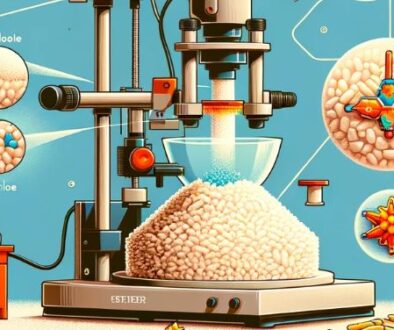Exploring the Golden Rice incident’s ethical debates, public reactions, and the balance between scientific innovation and global health needs.
On August 30, 2012, the international environmental organization Greenpeace published a research paper stating that researchers from a scientific research institution at Tufts University in the United States fed 24 children in Hunan Province, China, “golden rice” – genetically modified rice. Among the collaborators of the paper are Chinese researchers. The news quickly attracted great attention from all walks of life and competent authorities. Subsequently, all parties involved in the country expressed their opinions to varying degrees, but the “Golden Rice” incident is still full of chaos.
Introduction to the Golden Rice Incident
In a notable publication dated August 30, 2012, the esteemed international environmental advocacy group Greenpeace brought to light a significant and controversial piece of research conducted by a team affiliated with a scientific institution at Tufts University in the United States. This research involved feeding “golden rice” – a genetically modified variant of rice – to a group of 24 children in Hunan Province, China. This variant of rice has been engineered to produce beta-carotene, a precursor to vitamin A, aiming to combat vitamin A deficiency in regions where rice is a staple food. The involvement of Chinese researchers in this study underscores the collaborative nature of the endeavor, bridging Western scientific advancements with Eastern populations.
The Study’s Impact and Public Attention
The revelation of this study promptly garnered widespread attention across various sectors, including the general public, scientific communities, environmental advocacy groups, and government authorities. The incident, colloquially referred to as the “Golden Rice” incident, sparked a complex debate that touched on multiple facets of modern agriculture, bioethics, and public health.
Ethical Concerns and Criticisms
Critics of the study, including Greenpeace, raised ethical concerns regarding the use of genetically modified organisms (GMOs) in human food supplies, particularly in experimental contexts involving vulnerable populations without explicit consent. The organization’s critique extended to questioning the transparency of the research methodology and the potential for unforeseen health implications for the participants involved.
Advocacy for Golden Rice’s Potential Benefits
On the other side of the debate, proponents of golden rice highlighted the potential for significant public health benefits, particularly in combating vitamin A deficiency, a condition that can lead to severe health issues like blindness and even death. This camp argued that genetic modification technology could be a viable solution to nutritional deficiencies in impoverished regions, provided that such interventions are carried out with strict adherence to ethical standards and rigorous scientific evaluation.
Multi-faceted Responses and Policy Implications
In the wake of the publication, stakeholders from various sectors voiced their perspectives, contributing to a multifaceted discourse on the role of GMOs in food security, ethical considerations in human subject research, and the implications of biotechnological innovations in addressing global health challenges. Government authorities and regulatory bodies were prompted to reassess policies and guidelines governing GMO research and application, reflecting the need for a balanced approach that considers both the potential benefits and ethical dilemmas posed by genetic modification technologies.
Conclusion: Navigating the Complexities of GMOs
As the “Golden Rice” incident unfolded, it became evident that the situation was imbued with complexity and nuances that defy simple categorization. The incident serves as a poignant case study in the ongoing debate over GMOs, encapsulating the tensions between scientific innovation, ethical considerations, and the imperative to address global health disparities. It underscores the necessity for a collaborative, transparent, and ethically grounded approach in leveraging biotechnology to address humanitarian needs, ensuring that the pursuit of scientific progress does not overshadow the fundamental principles of human dignity and welfare.
For futher details of this article and research, feel free to contact our team for assistance.
Original research was done by Li Na
About ETprotein:
ETprotein, a reputable plant protein vegan protein Chinese factory manufacturer and supplier, is renowned for producing, stocking, exporting, and delivering the highest quality organic bulk vegan protein and plant proteins. They include Organic rice protein, clear rice protein, pea protein, clear pea protein, oat protein, watermelon seed protein, pumpkin seed protein, sunflower seed protein, mung bean protein, peanut protein, various of plant peptides etc. Their offerings, characterized by a neutral taste, non-GMO, allergen-free attributes, cater to a diverse range of industries. They serve nutraceutical, pharmaceutical, cosmeceutical, veterinary, as well as food and beverage finished product distributors, traders, and manufacturers across Europe, USA, Canada, Australia, Thailand, Japan, Korea, Brazil, and Chile, among others.
ETprotein specialization includes exporting and delivering tailor-made protein powder and finished nutritional supplements. Their extensive product range covers sectors like Food and Beverage, Sports Nutrition, Weight Management, Dietary Supplements, Health and Wellness Products, and Infant Formula, ensuring comprehensive solutions to meet all your protein needs.
As a trusted company by leading global food and beverage brands and Fortune 500 companies, ETprotein reinforces China’s reputation in the global arena. For more information or to get a free sample of their protein products, please contact them and email sales(at)ETprotein.com today.














